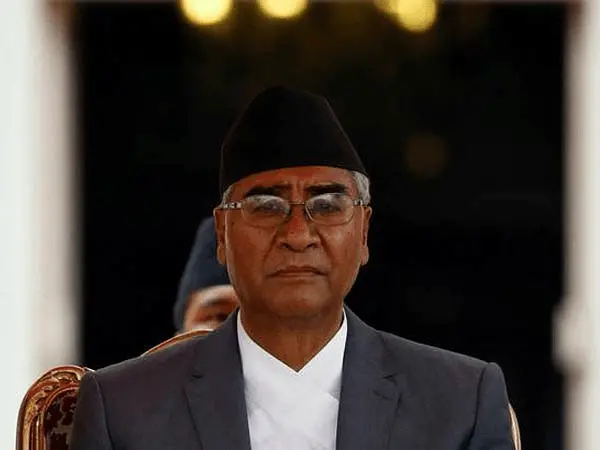Nepali Congress President Sher Bahadur Deuba was appointed prime minister of the country on Tuesday within a deadline set by the Supreme Court.
"The president has appointed Nepali Congress President Sher Bahadur Deuba as the prime minister" under the Constitution of Nepal, Bhesh Raj Adhikari, chief personal secretary to Nepali President Bidya Devi Bhandari, told Xinhua.
"He will be administered the oath of office and secrecy at 6"00 p.m. today (Tuesday)," said Adhikari.
In its Monday verdict ordering the dissolved House of Representatives to be restored, the Supreme Court also directed Bhandari to appoint Deuba as the new premier by 5:00 p.m. Tuesday local time.
It is the fifth time for 75-year-old Deuba to assume the premiership. The 2017 general election in Nepal was held under his leadership. The outgoing Prime Minister KP Sharma Oli succeeded him in February 2018.
Deuba will head the government until the next general election slated for November next year if he survives a vote of trust in the House of Representatives within 30 days after his appointment as prime minister.
The Supreme Court ruled on Monday that a session of the lower house of parliament shall be called in seven days.
Currently, the Nepali Congress has 61 seats in the 271-member lower house, and Deuba needs 136 votes to pass the floor test.
Among the parties and factions that had endorsed Deuba's claim to the premiership, the Communist Party of Nepal (Maoist Centre) has 49 seats, the Upendra Yadav faction of the Janata Samabadi Party has 12 seats, and the Rashtriya Janamorcha has one seat.
While the Madhav Kumar Nepal faction of the Communist Party of Nepal (Unified Marxist Leninist) headed by Oli had supported Deuba's bid for the post of the prime minister, this faction has forged an agreement with the Oli faction to settle their disputes.
As recommended by Oli, President Bhandari dissolved the lower house on May 22 after she rejected claims by Deuba and Oli to the premiership, a move that was challenged by an alliance of the Nepali Congress and other opposition parties and factions at the Supreme Court.
(ASIA PACIFIC DAILY)
 简体中文
简体中文



